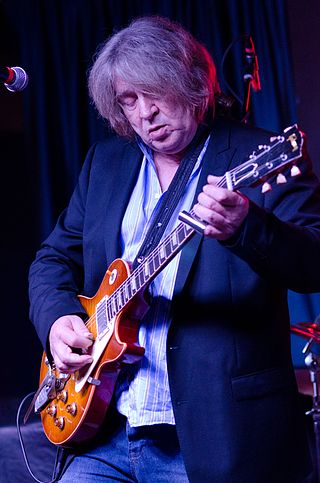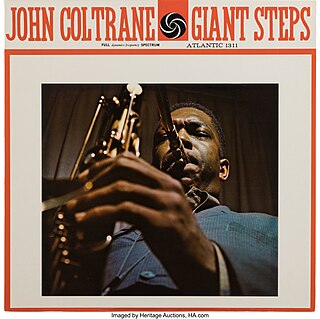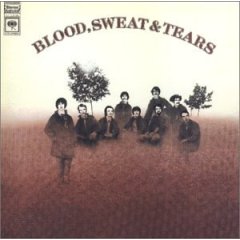Related Research Articles

The Rolling Stones are an English rock band formed in London in 1962. Active for over six decades, they are one of the most popular and enduring bands of the rock era. In the early 1960s, the band pioneered the gritty, rhythmically driven sound that came to define hard rock. Their first stable line-up consisted of vocalist Mick Jagger, guitarist Keith Richards, multi-instrumentalist Brian Jones, bassist Bill Wyman, and drummer Charlie Watts. During their early years, Jones was the primary leader. Andrew Loog Oldham became their manager in 1963 and encouraged them to write their own songs. The Jagger–Richards partnership soon became the band's primary songwriting and creative force.

Buffalo Springfield was a rock band formed in Los Angeles by Canadian musicians Neil Young, Bruce Palmer and Dewey Martin and American musicians Stephen Stills and Richie Furay. The group, widely known for the song "For What It's Worth", released three albums and several singles from 1966 to 1968. Their music combined elements of folk music and country music with influences from the British Invasion and psychedelic rock. Like contemporary band the Byrds, they were key to the early development of folk rock. The band took their name from a steamroller parked outside their house.

John Brumwell Mayall was an English blues and rock musician, songwriter and producer. In the 1960s, he formed John Mayall & the Bluesbreakers, a band that has counted among its members some of the most famous blues and blues rock musicians. A singer, guitarist, harmonica player, and keyboardist, he had a career that spanned nearly seven decades, remaining an active musician until his death aged 90. Mayall has often been referred to as the "godfather of the British blues", and was inducted into the Rock and Roll Hall of Fame in the musical influence category in 2024.

Ian Andrew Robert Stewart was a British keyboardist and co-founder of the Rolling Stones. He was removed from the lineup in May 1963 at the request of manager Andrew Loog Oldham who felt he did not fit the band's image. He remained as road manager and pianist for over two decades until his death, and was posthumously inducted into the Rock and Roll Hall of Fame along with the rest of the band in 1989.

William George Wyman is an English musician who was the bass guitarist with the rock band the Rolling Stones from 1962 to 1993. Wyman was part of the band's first stable lineup and performed on their first 19 albums. Since 1997, he has performed as the vocalist and bass guitarist for Bill Wyman's Rhythm Kings. He was inducted to the Rock and Roll Hall of Fame as a member of the Rolling Stones in 1989. Wyman briefly returned to recording with the Rolling Stones in 2023.

Michael Kevin Taylor is an English guitarist, best known as a former member of John Mayall's Bluesbreakers (1967–1969) and the Rolling Stones (1969–1974). As a member of the Stones, he appeared on Let It Bleed (1969), Get Yer Ya-Ya's Out! The Rolling Stones in Concert (1970), Sticky Fingers (1971), Exile on Main St. (1972), Goats Head Soup (1973) It's Only Rock 'n Roll (1974), and Tattoo You (1981).

Let It Bleed is the eighth studio album by the English rock band the Rolling Stones, released on 28 November 1969 by London Records in the United States and on 5 December 1969 by Decca Records in the United Kingdom. Released during the band's 1969 American Tour, it is the follow-up to Beggars Banquet (1968), and like that album is a return to the group's more blues-oriented approach that was prominent in the pre-Aftermath (1966) period of their career. Additional sounds on the album draw influence from gospel, country blues and country rock.

It's Only Rock 'n Roll is the twelfth studio album by the English rock band the Rolling Stones, released on 18 October 1974 by Rolling Stones Records. It was the last album to feature guitarist Mick Taylor; the songwriting and recording of the album's title track had a connection to Taylor's eventual replacement, Ronnie Wood. It's Only Rock 'n Roll combines the core blues and rock 'n' roll–oriented sound with elements of funk and reggae. It's Only Rock 'n Roll reached number one in the United States and number two in the UK.

Giant Steps is a studio album by the jazz musician John Coltrane. It was released in February 1960 through Atlantic Records. This was Coltrane's first album as leader for the label, with which he had signed a new contract the previous year. The record is regarded as one of the most influential jazz albums of all time. Many of its tracks have become practice templates for jazz saxophonists. In 2004, it was one of fifty recordings chosen that year by the Library of Congress to be added to the National Recording Registry. It attained gold record status in 2018, having sold 500,000 copies.

Richard Clifford Taylor is an English musician, best known as the guitarist and founding member of the Pretty Things.

Filles de Kilimanjaro is a studio album by the American jazz trumpeter Miles Davis. It was recorded in June and September 1968 at Columbia 30th Street Studio in Manhattan, New York City, and released on Columbia Records in December of that year in the United Kingdom and in the United States the following February. The album is a transitional work for Davis, who was shifting stylistically from acoustic post-bop recordings with his Second Great Quintet to the jazz fusion of his subsequent "electric period". Filles de Kilimanjaro was well received by contemporary music critics, who viewed it as a significant release in modern jazz. Pianist Chick Corea and bassist Dave Holland appear on two tracks, marking their first participation on a Davis album.

Seven Steps to Heaven is a studio album by the jazz musician Miles Davis. It was released through Columbia Records on July 15, 1963. The recording took place at Columbia Studios in Los Angeles in April 1963, and at Columbia's 30th Street Studios in Manhattan in May 1963. It presents the Miles Davis Quintet in transition, with the New York session introducing the rhythm section of Herbie Hancock, Ron Carter and Tony Williams, who would become Davis' regular sidemen for the next five years. Upon release, the album was Davis' most successful on the Billboard pop LPs chart up to that point, peaking at number 62.

Metamorphosis is the third compilation album of the Rolling Stones music released by former manager Allen Klein's ABKCO Records after the band's departure from Decca and Klein. Released in 1975, Metamorphosis centres on outtakes and alternate versions of well-known songs recorded from 1964 to 1970.
Sidcup Art College, also known as Sidcup School of Art, was an art college in Grassington Road, Sidcup, Greater London, England. Founded in 1898, it amalgamated in 1962 with Bromley College of Art and Beckenham School of Art to form Ravensbourne College of Art and Design, now Ravensbourne University London.

Blood, Sweat & Tears is the second album by the American band Blood, Sweat & Tears, released on December 11, 1968. It was the most commercially successful album for the group, rising to the top of the U.S. charts for a collective seven weeks and yielding three successive Top 5 singles. It received a Grammy Award for Album of the Year in 1970. The album has been certified quadruple platinum by the RIAA, with sales of more than four million units in the U.S. In Canada, the album enjoyed a total of eight weeks at number 1 on the RPM national album chart.

Thirty Seconds Over Winterland is an album by the American psychedelic rock band Jefferson Airplane. It was recorded live in August and September 1972, at the Auditorium Theatre in Chicago and the Winterland Ballroom in San Francisco. It was released in April 1973; reflecting the band's declining commercial stature, it only peaked at No. 52 on the Billboard chart.

Richard Brown, better known by his stage name of Ricky Fenson and also known as Rick Brown, is a British bass guitarist.
Humpy Bong was an English folk rock band formed in London in 1970, by former Bee Gees drummer Colin Petersen and Irish folk rock singer Jonathan Kelly.

Miles & Quincy: Live at Montreux is a collaborative live album by American jazz trumpeter Miles Davis and conductor Quincy Jones. It was recorded at the 1991 Montreux Jazz Festival and released by Warner Bros. Records in 1993.
References
- ↑ Davis, Stephen (2001). Old gods almost dead : the 40-year odyssey of the Rolling Stones. Broadway Books. p. 52. ISBN 978-0-7679-0312-7.
- ↑ Davis, Stephen/ page 52. "As the autumn of 1962 wore on, the Rollin' Stones picked up occasional jobs,... Dick Taylor left the band in September to attend the Royal College of Art. For a couple of months, the bass chores were handled by various people, most often Colin Golding, who probably played around eight gigs..."
- ↑ "The Complete Works of the Rolling Stones - Database". www.nzentgraf.de. Retrieved 2023-10-18.
- ↑ "Colin Golding". www.the-presidents.org.uk. Retrieved 2023-10-15.